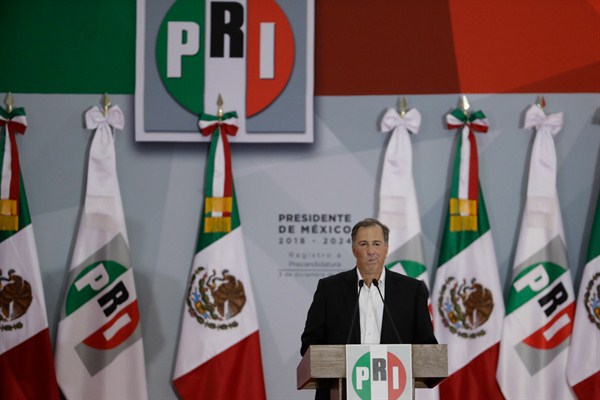MEXICO CITY—Were Enrique Pena Nieto eligible for re-election in Mexico’s 2018 presidential race, most analysts believe he would be soundly beaten. Pena Nieto is plagued by corruption scandals, rising crime rates and, above all, the sense that he represents the very worst of the country’s oldest political party, the Institutional Revolutionary Party, or PRI; his six-year-term, which ends next December, has exposed many of the fault lines that continue to undermine Mexico’s potential. Add U.S. President Donald Trump’s bullying tactics on trade and border security, and the resurgence of veteran leftist Andres Manuel Lopez Obrador in the polls, and until recently some saw the result of July’s election as a foregone conclusion.
Yet the announcement of Jose Antonio Meade as the PRI’s candidate on Nov. 27 has set the stage for what is likely to be a fiercely competitive race between the incumbent party—center-left, pro-market—and the National Regeneration Movement, or Morena, led by Lopez Obrador, who has revived the rhetoric of Mexico’s populist leaders of the 1970s. Pena Nieto looks set to leave office as a deeply contradictory figure whose government enabled the passage of the country’s most important economic reforms in three decades, yet whose personal image and that of his party have been stained by scandal and bloodshed.
“I think that Pena Nieto’s term will ultimately be remembered in two ways,” says Carlos Bravo Regidor, a political scientist at the Center for Research and Teaching in Economics in Mexico City. “In the short term, it will be remembered as six years of corruption, impunity and violence. In the long term, perhaps, for the merits of the reforms, above all those concerning public education and energy. But as Keynes liked to say, in the long term we are all dead.”

